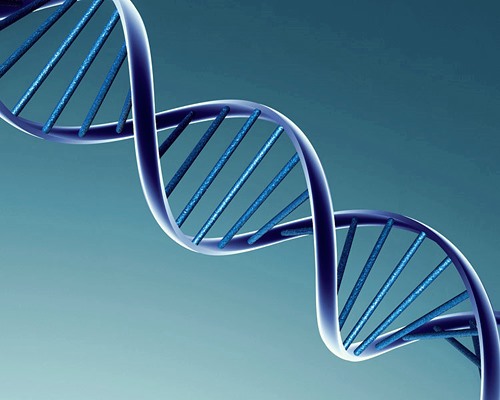
Presentation:
Genealogy, the investigation of family ancestry and heredity, has acquired tremendous ubiquity lately. Revealing one’s tribal roots and understanding the tales of our ancestors can be a captivating and compensating venture. While many individuals are know about the rudiments of genealogy, there are a few less popular realities that can add profundity and interest to this charming field of study. In this article, we will investigate the main 10 less popular realities about genealogy that will upgrade your comprehension and enthusiasm for your family’s legacy.
Hereditary Genealogy and DNA Testing:
Progressions in DNA testing have changed genealogy research. Hereditary genealogy consolidates conventional genealogical strategies with DNA examination to lay out associations among people and their precursors. By breaking down DNA tests, revealing beforehand obscure family members and follow heredities across mainlands and centuries is conceivable.
Family name Development:

Family names, or family names, have not forever been super durable apparatuses. Over the long haul, last names have developed and changed because of elements like marriage, movement, or occupation. Understanding the verifiable setting behind last name varieties can give significant bits of knowledge into your family’s ancestry.
The Significance of Oral History:
Oral history, the transmission of family stories and customs through verbally expressed word, assumes an essential part in genealogical exploration. Family legends, tales, and individual stories went down through ages can give important insights and setting for following your family ancestry.
Secret Relocations:
Relocation designs have formed the total populace since the beginning of time. Investigating your family’s movement history can uncover amazing associations with far off terrains and societies. Predecessors might have moved because of political commotion, financial open doors, or different variables, prompting startling disclosures about your legacy.
Female Precursors:

Genealogy research has generally centered around following fatherly heredities, yet the investigation of maternal heritage is similarly significant. Matrilineal genealogy considers the heredity went down through the mother’s line, revealing insight into the frequently neglected commitments of ladies in significantly shaping family backgrounds.
Hereditary Admixture:
Numerous people have complex familial foundations coming about because of intermarriage and hereditary admixture. DNA testing can uncover surprising nationalities or hereditary markers, testing assumptions of one’s legacy. Investigating these different hereditary roots can be an entrancing excursion of self-disclosure.
Safeguarding of Authentic Records:
The safeguarding of verifiable records is an indispensable part of genealogy that guarantees the accessibility and openness of important data for people in the future. Authentic records act as the establishment for genealogical exploration, giving urgent insights regarding people, families, and networks. Protecting these records includes a mix of actual conservation, digitization endeavors, and the foundation of powerful chronicled frameworks to shield these important assets.
Actual conservation is fundamental to safeguard verifiable records from disintegration and harm. Numerous authentic records, for example, birth testaments, marriage licenses, and registration records, are frequently delicate and powerless to debasement over the long haul. Appropriate capacity conditions, including temperature and dampness control, security from light openness, and the utilization of corrosive free materials, can assist with moderating harm and delay the life expectancy of these records. Safeguarding endeavors likewise incorporate preservation medicines, like cleaning, fix, and rebuilding, to guarantee the life span of the records.
Digitization assumes a vital part in the safeguarding of verifiable records. By changing over actual records into advanced designs, the gamble of misfortune because of actual crumbling or catastrophes, like fire or flood, is limited. Digitization endeavors include checking archives, photos, and different materials, and making computerized information bases or vaults to store and arrange the digitized content. This takes into consideration simple access and scattering of authentic records, even across geographic limits. Digitization additionally works with the production of accessible data sets, making it more straightforward for genealogists to rapidly find and recover significant data.
Notwithstanding actual safeguarding and digitization, the foundation of powerful chronicled frameworks is fundamental for the drawn out protection of verifiable records. Chronicled establishments, like libraries, documents, and verifiable social orders, assume a basic part in gathering, sorting out, and keeping up with verifiable records. These foundations utilize proficient chroniclers who are prepared in safeguarding strategies and best practices for overseeing and classifying authentic materials. They guarantee that records are appropriately put away, coordinated, and made open to specialists, genealogists, and the overall population.
Joint effort between genealogists, students of history, and chronicled establishments is significant for the safeguarding of verifiable records. Genealogists frequently add to the protection endeavors by giving duplicates of their exploration discoveries, family records, or photos to documents or authentic social orders. This cooperation assists with growing the degree and profundity of authentic assortments and guarantees that significant assets are not lost or dispersed. It likewise considers the sharing of information and mastery among genealogists and annalists, adding to the general improvement of safeguarding rehearses.
Safeguarding verifiable records isn’t without its difficulties. Numerous verifiable records are in danger of being lost because of disregard, catastrophic events, or absence of assets for conservation endeavors. Moreover, mechanical out of date quality represents a danger to computerized records, as document organizations and capacity media become obsolete. Progressing financing and backing for protection drives are urgent to address these difficulties and guarantee the congruity of safeguarding endeavors.
The conservation of verifiable records isn’t exclusively an obligation of chronicled establishments and experts; a common undertaking requires the dynamic cooperation of genealogists, specialists, and the more extensive local area. People can contribute by appropriately archiving and protecting their own family records, photos, and oral accounts. This incorporates marking and sorting out materials, digitizing them whenever the situation allows, and offering duplicates to important documented foundations or relatives. By making these strides, people can assume a fundamental part in safeguarding their own family ancestry and adding to the bigger group of verifiable records.
All in all, the conservation of verifiable records is fundamental for the area of genealogy. Through actual protection, digitization endeavors, and the foundation of strong chronicled frameworks, authentic records can be defended, guaranteeing their accessibility and openness for people in the future. Coordinated effort between genealogists, history specialists, and authentic establishments is critical to fruitful conservation drives. By perceiving the worth of authentic records and effectively taking part in conservation endeavors, people can add to the continuation of genealogical examination and the protection of our aggregate legacy.
Cooperative Genealogy:
Cooperation is a key part of genealogy that can significantly improve the exploration cycle and cultivate a feeling of local area among specialists. Taking part in cooperative genealogy includes sharing data, pooling assets, and associating with others who share a typical interest in uncovering family ancestry. This cooperative methodology offers various advantages and open doors for both amateur and experienced genealogists.
One of the critical benefits of cooperative genealogy is the capacity to share and trade data. Genealogical exploration frequently includes sorting out sections of data dispersed across different sources. By working together with others, scientists can take advantage of an aggregate information base and access assets that they might not have found all alone. Sharing examination discoveries, archives, photos, and family stories can give significant bits of knowledge and lead to new revelations.
Cooperation additionally empowers scientists to chip away at shared genealogical lines or geological areas of interest. By separating the examination errands and zeroing in on unambiguous angles, people can gain ground all the more proficiently. This division of work permits specialists to make more progress and can altogether accelerate the examination cycle. Besides, various specialists might bring novel points of view, skill, and admittance to assets that can improve the aggregate comprehension of a family’s ancestry.
Taking part in cooperative genealogy frequently includes joining on the web gatherings, conversation gatherings, or virtual entertainment networks committed to genealogical exploration. These stages furnish amazing chances to associate with different analysts, get clarification on some pressing issues, look for counsel, and offer encounters. The trading of thoughts, procedures, and philosophies can assist with conquering research deterrents and give new points of view on testing genealogical issues.
Cooperative genealogy additionally adds to the conservation and precision of family ancestry. By taking part in discourse with different scientists, people can cross-reference data, check sources, and right mistakes or errors. This aggregate examination guarantees that exploration is of a better and decreases the gamble of propagating errors or fantasies. Teammates can act as an encouraging group of people, giving direction, consolation, and useful criticism to assist with further developing examination abilities and strategies.
One more advantage of joint effort is the possibility to associate with far off family members. Through shared research endeavors, people might find beforehand obscure living family members who are likewise keen on investigating their family ancestry.
While coordinated effort is useful, moving toward it with care and regard for others’ work and privacy is significant. Specialists ought to continuously give appropriate credit to the sources and people who have added to their discoveries. They ought to likewise be aware of protection concerns and look for assent while sharing delicate data or photos.
Regarding the protection and inclinations of living relatives is urgent in keeping up with trust and moral examination rehearses.
All in all, cooperative genealogy is a strong methodology that permits specialists to take advantage of shared information, assets, and mastery. By cooperating, genealogists can speed up their examination progress, uncover new data, and offer important help and approval to each other. Taking part in cooperative genealogy upgrades individual examination endeavors as well as adds to the conservation and precision of family ancestry for people in the future. By encouraging a feeling of coordinated effort and local area, genealogists can all in all reveal and commend the rich embroidery of their common legacy.
Hereditary Genealogy and Protection Concerns:
Hereditary genealogy, the crossing point of customary genealogical exploration and DNA testing, has changed the area of genealogy. By breaking down DNA tests, people can uncover beforehand obscure family members, follow familial genealogies, and gain experiences into their hereditary legacy. Nonetheless, alongside the advantages of hereditary genealogy, there are likewise huge protection worries that should be thought of.
The most squeezing security worry in hereditary genealogy is the sharing of individual hereditary data. At the point when people submit DNA tests to testing organizations, they endow these organizations with their most close and delicate information — their hereditary code. This data can uncover their own hereditary cosmetics as well as possibly touchy wellbeing related data and insights concerning their relatives.
One of the essential worries is the possible abuse or unapproved admittance to this hereditary information. Hereditary data is exceptionally private and can have broad ramifications for people and their families. It tends to be utilized to make forecasts about a singular’s inclination to specific infections or conditions, which can affect protection inclusion, work valuable open doors, and individual connections. There is a real trepidation that this data could be taken advantage of or fall into some unacceptable hands, prompting segregation, slander, or even wholesale fraud.
One more critical protection concern is the issue of information security. Hereditary testing organizations store immense measures of hereditary information, and it is fundamental that they have hearty safety efforts set up to safeguard this data from unapproved access or hacking. A break of this information could have serious results, not just for the people whose information is compromised yet additionally for their family members who might be distinguished through their hereditary associations.
Moreover, there is the issue of informed assent and the potential for unseen side-effects. Numerous people may not completely comprehend the ramifications of sharing their hereditary data when they go through DNA testing. They may not understand that their information can be utilized for purposes past genealogy, like exploration or business purposes. It is essential that people are educated and instructed about the possible dangers and advantages of hereditary testing, permitting them to come to informed conclusions about whether to continue and how much they wish to share their information.
Tending to these security concerns requires a complex methodology. As a matter of some importance, people ought to completely investigate and pick legitimate DNA testing organizations that have solid security strategies and a history of safeguarding client information. Perusing and figuring out the agreements, protection strategies, and information sharing acts of these organizations is fundamental prior to presenting a DNA test.
Moreover, people ought to consider the degree of information sharing they are alright with. While certain people might be open to offering their information to different genealogists or scientists, others might like to restrict admittance to their data. It is pivotal to comprehend the choices accessible for controlling the sharing and perceivability of hereditary information and to pursue decisions that line up with individual security inclinations.
Guideline and regulation likewise assume a vital part in safeguarding security in hereditary genealogy. States and administrative bodies ought to lay out clear rules and principles for information assurance, informed assent, and the admissible purposes of hereditary data. These guidelines ought to guarantee that people have command over their hereditary information, that organizations comply to severe security conventions, and that there are ramifications for any breaks or abuse of hereditary data.
Taking everything into account, while hereditary genealogy offers invigorating opportunities for revealing genealogical associations and understanding our hereditary legacy, it likewise raises authentic protection concerns. The sharing of individual hereditary data and the potential for unapproved access or abuse require cautious thought. By being educated, settling on taught decisions, and supporting areas of strength for insurances, people can explore the universe of hereditary genealogy while defending their protection and the security of their families.
Profound Effect:
Genealogy, the investigation of family ancestry and heredity, is a profoundly private and close to home excursion that can significantly affect people. Past the assortment of names, dates, and verifiable records, genealogy digs into the lives and accounts of our predecessors, bringing out a scope of feelings and making a strong feeling of association and having a place.
One of the main close to home effects of genealogy is the feeling of personality and having a place it gives. Finding one’s genealogical roots and grasping the victories, battles, and day to day existences of our ancestors can impart a profound feeling of satisfaction and association with our legacy. It permits us to see ourselves as a feature of a bigger story, a continuation of a heredity that stretches back through time. This information can be engaging and give a feeling of motivation and having a place on the planet.
Genealogy likewise has the ability to summon a scope of feelings, from satisfaction and fervor to trouble and sadness. Uncovering accounts of win and achievement can make a feeling of motivation and inspiration, while finding out about the difficulties and difficulties our predecessors confronted can summon sympathy and a more profound comprehension of our own strength. Sad occasions, like conflicts, pandemics, or catastrophic events, can evoke a significant feeling of misfortune and grieving for the lives impacted. Sincerely interfacing with these accounts permits us to respect and recall the individuals who preceded us.
The method involved with revealing familial stories and sorting out the riddle of our family ancestry can be a personal rollercoaster. It frequently includes long periods of exploration, careful assessment of authentic archives, and at times even startling revelations. These snapshots of disclosure can go from brilliant amazements, like uncovering popular or powerful predecessors, to stunning disclosures, for example, finding off the record pieces of information or tragically missing family members. The profound effect of these disclosures can be both exciting and overpowering, working up a blend of feelings that differ from one individual to another.
Notwithstanding private feelings, genealogy can likewise encourage a feeling of association with a more extensive local area. Participating in genealogical examination frequently includes associating with far off family members, teaming up with different analysts, and partaking in web-based gatherings or nearby genealogy social orders. These associations can make an encouraging group of people of similar people who share an energy for revealing family ancestry. Sharing stories, trading data, and offering backing can make a feeling of kinship and profound approval in the genealogy local area.
Moreover, genealogy can be a recuperating and groundbreaking experience for people. It takes into consideration the investigation of family stories that might have been lost or neglected, giving a voice to the people who preceded us. Understanding our family’s ancestry can give a feeling of conclusion, compromise, and comprehension of our very own stories. It can likewise assist people with handling their own encounters and figure out their position on the planet.
All in all, genealogy is definitely in excess of an insightful pursuit or a simple leisure activity. A profoundly close to home excursion interfaces us to our past, shapes our present, and impacts our future. The close to home effect of genealogy reaches out past the social affair of realities and records, contacting our center and helping us to remember the many-sided embroidery of living souls that have formed who we are today. It is through this close to home association that genealogy turns into a groundbreaking and enhancing experience, permitting us to respect our progenitors, praise our common legacy, and gain a more profound comprehension of ourselves.
End:
Genealogy offers a window into the past, permitting us to interface with our progenitors and gain a more profound comprehension of our family’s legacy. By investigating these less popular realities about genealogy, we can enhance our exploration and reveal astounding stories and associations. Whether you are a carefully prepared genealogist or simply starting your excursion, diving into these entrancing parts of genealogy will make your mission for tribal information considerably seriously fulfilling.

